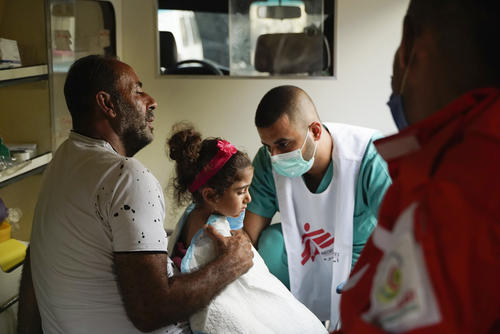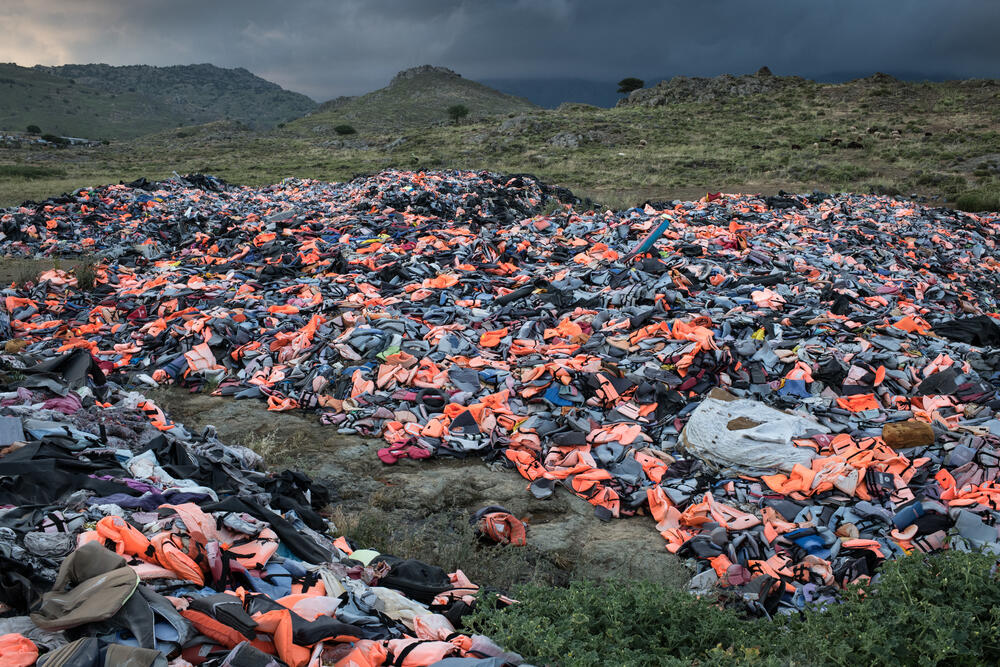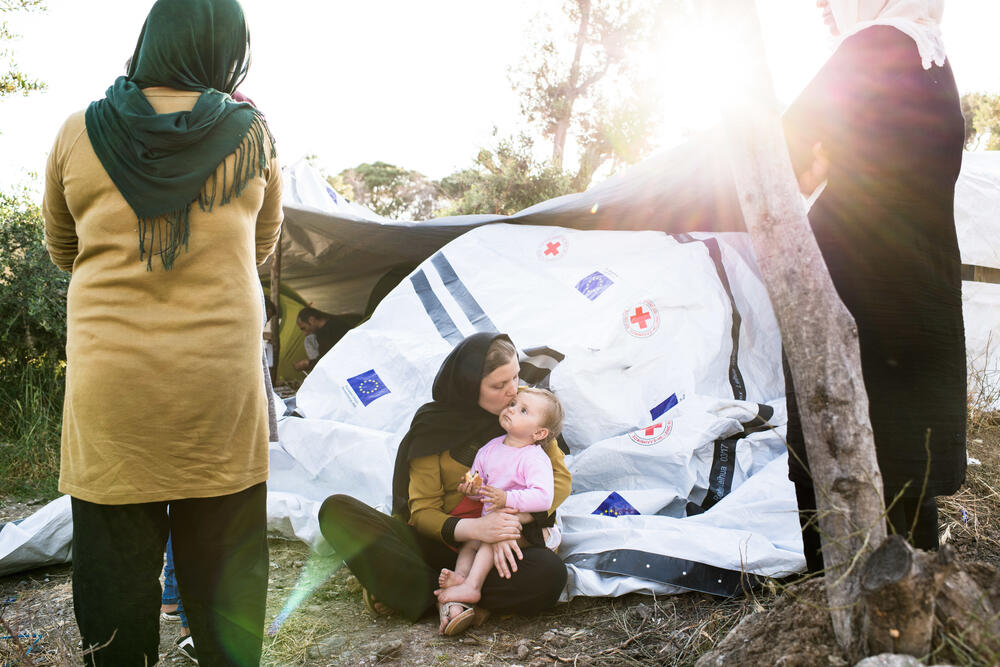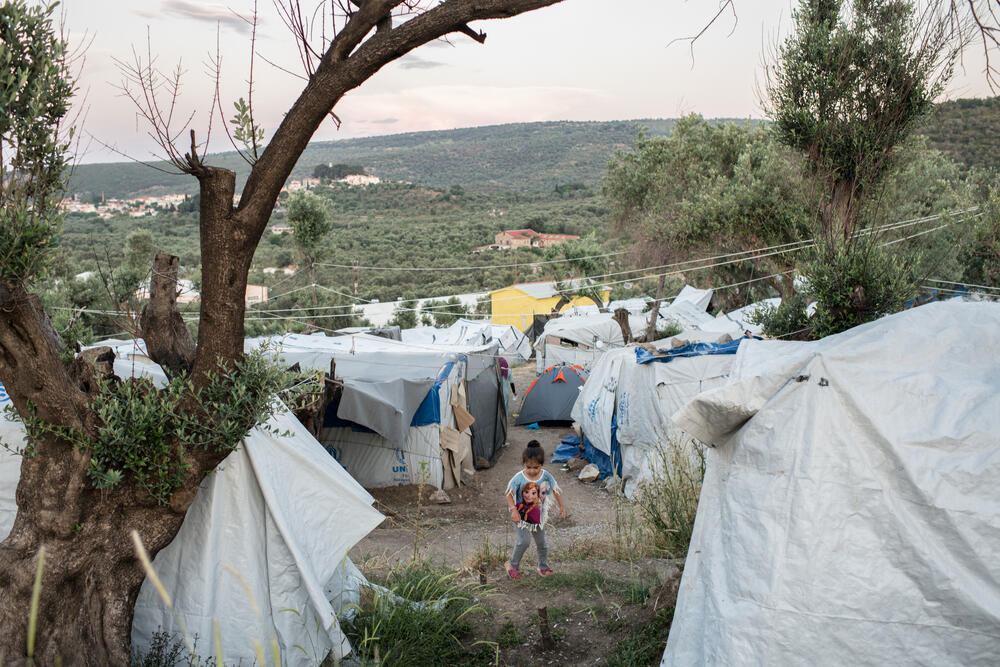How a European refugee camp is traumatising men, women and children
With the number of migrants and refugees continuously rising on the island of Lesvos, Greece, the situation in Moria refugee camp is descending into chaos.
People trapped in the camp are facing regular clashes and riots, incidents of sexual violence, and a sinking state of mental health.
Currently, there are over 8,000 people crammed into a space for 3,000 in Moria.
Conditions are so bad that people’s medical and mental health is being heavily compromised.
In the past few months, Médecins Sans Frontières / Doctors Without Borders (MSF) has witnessed further escalations of everyday violence in Moria, and treated cases of sexual violence that have occurred in and around the camp.
Limited mental health support
Much of the tension is caused by overcrowding and a lack of decent and humane living conditions.
In the main area of Moria camp and Olive Grove, there are 72 people per functioning toilet and 84 people per functioning shower. This is well below the recommended humanitarian standards in emergency situations.

Get closer to the Frontline
Get the latest news, stories and updates, straight to your inbox.
People’s mental health is being severely affected by the insecurity, the lack of humane living conditions and the limbo people find themselves in for months or years.
MSF’s mental health clinic in Mytilene only accepts the most severe cases and is currently working at full capacity
“Part of the reason people's mental health deteriorates so drastically here in Lesvos is that they come from traumatising experiences, and reach Europe hoping for refuge and dignity. But what they find is the opposite, more violence and more inhumane conditions,” says Giovanna Bonvini, mental health activity manager at Mytilene clinic.
“The other day a young man who was a victim of sexual violence was bought to the clinic by a friend in the midst of a psychotic breakdown.
“He has severe PTSD and was suffering from hallucinations and flashbacks, noises from all around, and could not stop crying during the two-hour session,” says Bonvini.
“He is scared of the dark and is constantly terrified of being attacked in Moria. The team started him on medication and he is having intensive psychological sessions, so he is now stable. But he will never make much progress, for as long as he is living in Moria, he will be locked in a cycle of despair and distress”.
We are now receiving around 15-18 referrals a week from other NGOs for cases of acute mental health problems, including children.
But this is just the tip of the iceberg; there are still many suffering from severe mental health problems that we do not have the capacity to treat. This is because MSF is the only organisation providing such specialised mental healthcare for this large and vulnerable population.
Containment policies must end
“The majority of these people are new arrivals suffering from psychotic symptoms including hallucinations, agitation, confusion, disorientation, and who have strong suicidal ideations or have attempted suicide,” says Dr Alessandro Barberio, an MSF psychiatrist at Mytilene clinic.
Through our mental health group therapy for children we have found that both unaccompanied children and children with family in the camp are being re-traumatised from their experiences of living in Moria, which is deeply concerning.
“In the past four weeks we have also received an increase in the number of minors suffering from intense panic attacks, suicidal ideation and suicide attempts,” says Dr Barberio.
“The appalling living conditions and the everyday violence in Moria camp is having a severely detrimental impact on the mental health of our patients, and is causing many of our patients to develop severe mental health conditions.”
We are calling for vulnerable people to be moved out of Moria into secure accommodation, as well as a decongestion of the camp.
Furthermore, we insist on an end to policies of containment, and call on the EU and state authorities to step up access to health and security for those in the camp.
Our experience shows that the deterrence policy of the EU-Turkey deal is not an effective one; people will continue to flee war and terror in order to survive.
Trapping these people in awful and unsafe conditions is simply further traumatising an already extremely vulnerable population.
MSF in Greece
In 2019, nearly 75,000 migrants and refugees from countries such as Syria and Afghanistan arrived in Greece. Men, women and children continue to make the journey in search of safety or to reach other destinations in Europe, only to find themselves stranded indefinitely.
As well as providing medical and mental healthcare to migrants and refugees on the Greek islands and in Athens, MSF continues to call for vulnerable people to be evacuated and policies of containment to be replaced by sustainable, humane solutions.


